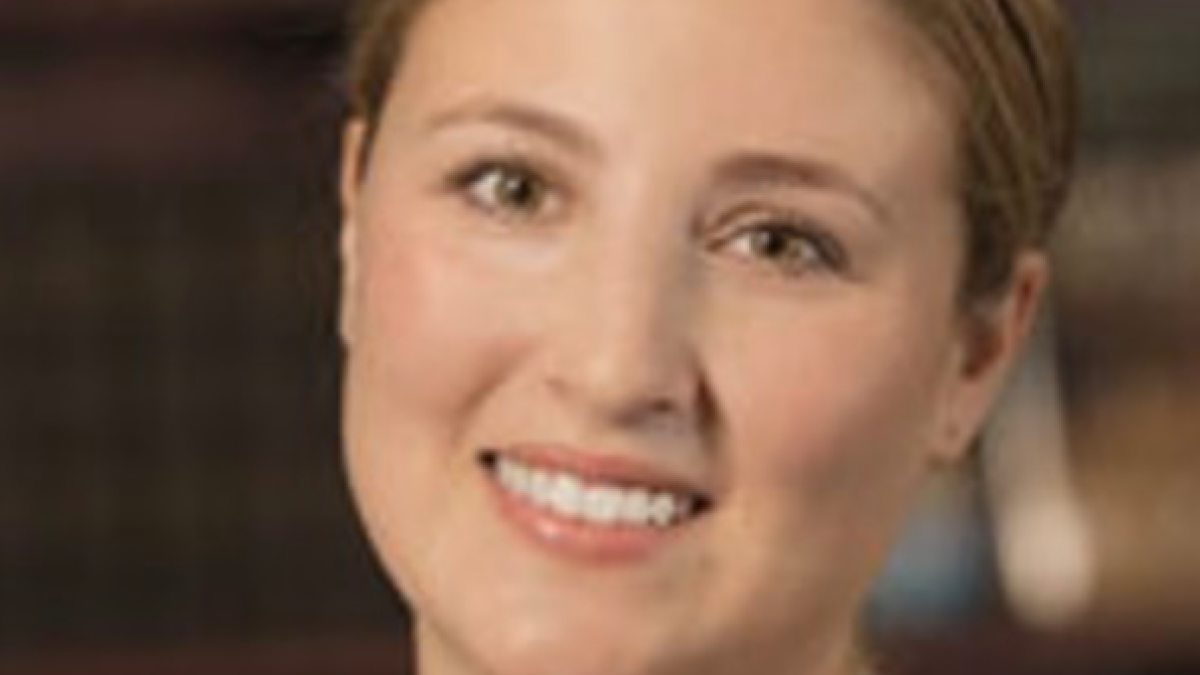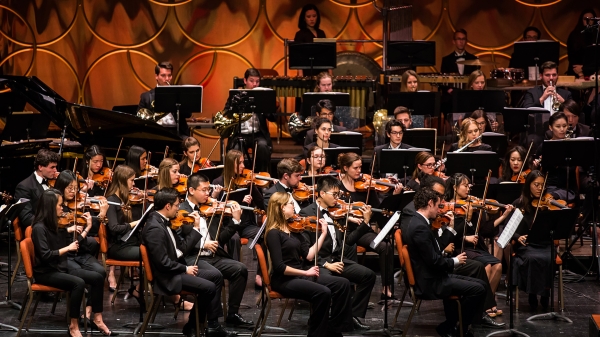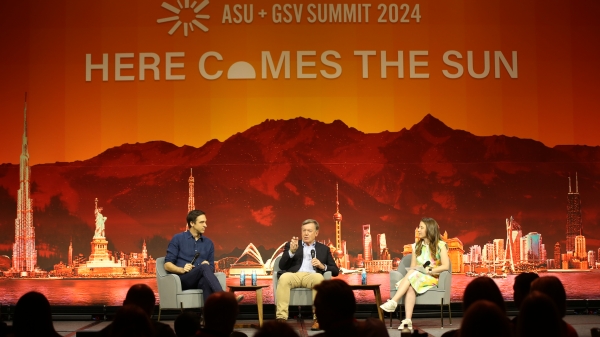ASU professor receives innovation award to study dating in the digital age

Assistant Professor Liesel Sharabi
Liesel Sharabi, an assistant professor in the Hugh Downs School of Human Communication, is the first recipient of the Hugh Downs School Faculty Innovation Award.
Sharabi, who studies interpersonal communication in the digital age, began her service at Arizona State University in fall 2020.
The two-year award was established in 2020 in memory of Hugh Downs by his son, Hugh R. “H.R.” Downs; his daughter, Deirdre Downs; and his grandson, Cameron Black. Hugh Downs, for whom the ASU school of human communication was named, was best known as an Emmy Award-winning American broadcaster, author, host and founding voice in modern American media. He died on July 1, 2020, at the age of 99.
“Professor Sharabi is well known for her cutting-edge research on the role technology plays in how people communicate in relationships,” said Hugh Downs School Associate Director and Professor Laura Guerrero, who directed the search committee that recruited Sharabi.
“In addition to publishing in numerous academic journals, she authors a blog called ‘Dating in the Digital Age’ for Psychology Today. Her work has also been featured in popular press outlets such as the Huffington Post and New York Magazine. Her research on relational communication and technology complements the research interests of Hugh Downs School faculty by looking at how technology is changing the communicative landscape in modern dating relationships.”
Sharabi will receive $5,000 a year for two years to support three projects:
Project No. 1: Dating in virtual reality
In the past few decades, digital dating via websites and mobile apps has become a multibillion-dollar industry and the most common way for couples in the United States to meet.
According to Sharabi, virtual reality (VR) is likely to be an important player in how singles interact.
“VR promises to be a new frontier in social interaction, potentially infiltrating the digital dating scene and blurring the boundary between mediated and face-to-face relationships,” she said.
To study dating and virtual realities, Sharabi will collaborate with Jonathan Pettigrew, an associate professor in the Hugh Downs School, and ASU’s engineering school to develop equipment and software. The team will run experiments by sending people on immersive VR first dates. Participants will actually be in different locations and wear VR headsets such that the partner’s social presence is very apparent.
“We are going to randomly pair people up and then observe their VR first dates. We're going to look at the communication process, how they orient towards each other as well as how they behave,” Sharabi said.
The team will look at relationship outcomes such as conversational satisfaction and if partners want to see each other for a second date (either face-to-face or via VR).
“We’re going to compare this experience to face-to-face dating as well as digital dating where people interact through text on a computer. Then we will look at how the outcomes compare to traditional forms of dating.”

Assistant Professor Liesel Sharabi holds her
framed certificate for the Hugh Downs School Faculty Innovation Award.
Project No. 2: Mobile dating apps and well-being
In recent years, particularly during the COVID-19 pandemic, the influence of technology use on mental health has become a topic of growing academic interest and societal concern.
“Several recent studies have credited technology use with declines in well-being among young adults, many of whom have grown up with the internet and mobile phones and who continue to spend much of their lives behind screens,” said Sharabi.
“For instance, researchers have found evidence of ‘Facebook depression’ and demonstrated that people who unfavorably compare themselves to others tend to be especially susceptible to the negative mental health effects of social media.”
Yet despite all that is known about the social and psychological effects of social media use, Sharabi says only a handful of studies have considered the implications of mobile dating apps for mental health and well-being.
Sharabi will be working with graduate and undergraduate students to launch one of the first longitudinal studies on this topic.
The study will follow a nationally representative sample of mobile dating app users for several weeks to examine the effects of frequent and compulsive swiping on important markers of mental health — including depression and social anxiety — and well-being, such as loneliness.
Sharabi also is currently working with graduate students to collect data related to this project that will focus specifically on the well-being of users of LGBTQIA+ dating apps.
Project No. 3: Online dating and marriage
Sharabi says relationship scientists have long sought to understand the institution of marriage and why some relationships succeed where others fail.
“The rise of online dating presents new challenges and opportunities for the long-term success of relationships that did not exist before the internet,” said Sharabi.
“Nearly one-third of marriages today started online, and research has shown that these relationships are often more satisfying and less likely to end in divorce than those that get their start in traditional offline venues. However, little is known about why online relationships would be more successful.”
To complete this project, Sharabi will analyze data for online dating and marriage.
“Just before the COVID-19 shutdown, I conducted 50 in-depth interviews with a diverse sample of former online daters who were married or engaged to someone they met online,” said Sharabi.
“I also surveyed a nationally representative sample of 924 married adults, half of whom met their spouse in online dating and the other half of whom were introduced in more traditional ways, such as in bars, or through friends. I plan to use the data to compare marriages formed from online dating to those that started offline and to determine whether the matching process on internet dating platforms is associated with long-term relationship success.”
She added, “This study will provide insight into how the marriages that result from online dating compare to offline relationships and whether these platforms are indeed delivering on claims of effectiveness.”
For those who are dating and hoping to find a spouse, take heart.
“Based on my conversations with participants, I also expect the results to be useful to online dating users in their efforts to find companionship and to build meaningful relationships on and off of internet dating platforms."
More Arts, humanities and education

ASU Symphony Orchestra welcomes visionary conductor Jonathan Taylor Rush
Guest conductor Jonathan Taylor Rush will join Arizona State University’s Jason Caslor, director of bands, to lead the ASU…

Chemistry classes are key to art student's success
Amanda Barnette has a passion for art preservation. That means that, for the past four years, the Arizona State University…

ASU+GSV Summit tackles big questions about AI, technology, education
Editor's note: We'll be updating this story daily throughout the summit. The annual ASU+GSV Summit kicked off in San Diego on…